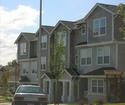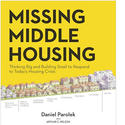Reports continue to mount on the decline of New York City through the pandemic months. In a July 2020 post, we summarized the situation: read more »
Housing
Urban Reform Institute Releases Report on Upward Mobility
In a new report, Upward Mobility, Charles Blain, Wendell Cox and Joel Kotkin examine examine housing costs, patterns of domestic migration and how they affect upward mobility for middle and working-class citizens, especially historically disadvantage minorities. An excerpt from the report follows below: read more »
- Login to post comments
Federal Low-Income Housing Tax Credits Aren't Helping Low-Income People
Tax credits provided by the federal government to developers of low-income housing are poorly monitored and have suffered from mission creep. Instead of providing housing to households whose incomes are below the poverty line, many states are using these funds to socially engineer people into living in high-density housing projects along transit corridors. read more »
- Login to post comments
Missing Middle Housing — Book Review
“Missing Middle Housing – Thinking Big and Building Small to Respond to Today’s Housing Crisis” by Daniel Parolek
Book Review by Adam Mayer
California State Senate Bill 1120 (SB 1120), a bill that would’ve permitted duplexes on land zoned for single-family residences across the state, died abruptly at the 11th hour back in August read more »
- Login to post comments
Americans Won't Live in the Pod
“No Bourgeois, No Democracy”
– Barrington Moore
Protecting and fighting for the middle class regularly dominates rhetoric on the Right and Left. Yet activists on both sides now often seek to undermine single-family home ownership, the linchpin of middle-class aspiration. read more »
- Login to post comments
This is the Great Reshuffling
The Interwebs are abuzz over the mass exodus from cities triggered by the coronavirus. Cue up the images of Moses parting the sea for a caravan of U-Hauls destined for the verdant cul-de-sacs of the Promised Land. This outward population migration is quantifiable and real. You’ll get no arguments at all from me. But the nuances are being lost in the chatter. read more »
- Login to post comments
Blue Today, Bluer Tomorrow
The long-rising blue tide that has colored American politics and values may have crested, but it could still have enough momentum to make it through the election year. Even if Trump is somehow reelected, the wielders of power and influence — academia, media, Wall Street, Hollywood, the big-tech oligarchs, the dominant nonprofits, and the governmental apparat — will remain deep blue for the foreseeable future. read more »
- Login to post comments
Two Decades of Interstate Migration
America is still a mobile nation. Back in the 2000-2010 decade, 12.9 million people moved interstate, nearly five percent of the total population. In the 2010s the population has been a bit less mobile, with net domestic migration of 11.7 million residents, slightly under four percent. Nonetheless, 11.7 million is a large number. This is nearly equal to the population of Ohio, with only five states being larger read more »
- Login to post comments
Let's Stop Shaming the Suburbs
I have been a New Yorker for over a decade now, but I have spent the past few months in the Hampton Roads region of Virginia, since it’s a little easier on our family during the pandemic. Locals joke that it’s a “suburb of nowhere,” and it’s true that the region may lack some of the density and sizable cultural institutions that define the New York experience—24/7 amenities, robust public transit, and the sidewalk ballets. But the tidewater region is anything but an isolated wasteland, and spending time here has been absolutely lovely. read more »
- Login to post comments
Dwellings in Decline as Demographics Drive Demand
Rarely has the question of where, why and how people will live, work and play been so important, as the impact of COVID-19 begins to transform the demand and supply equation across the Australian property market. read more »
- Login to post comments






















